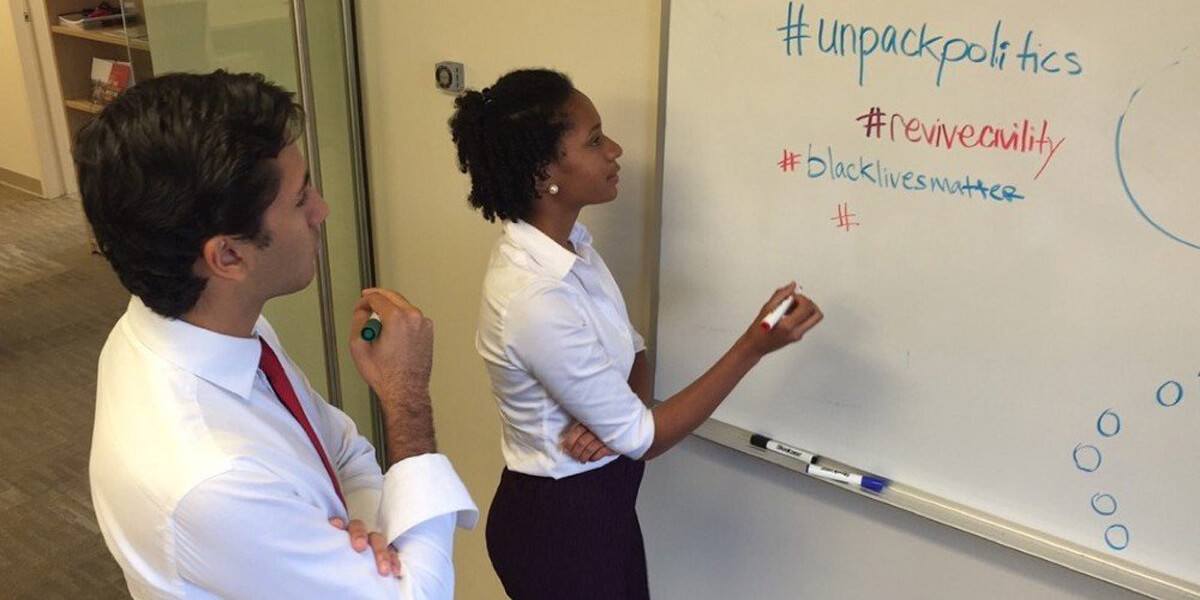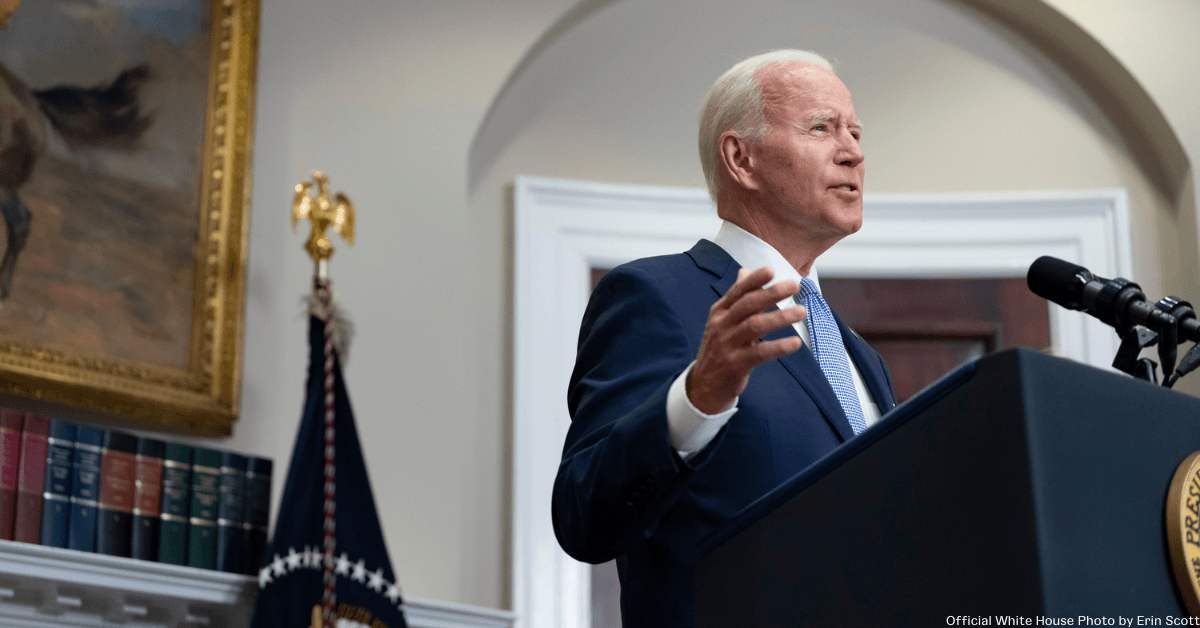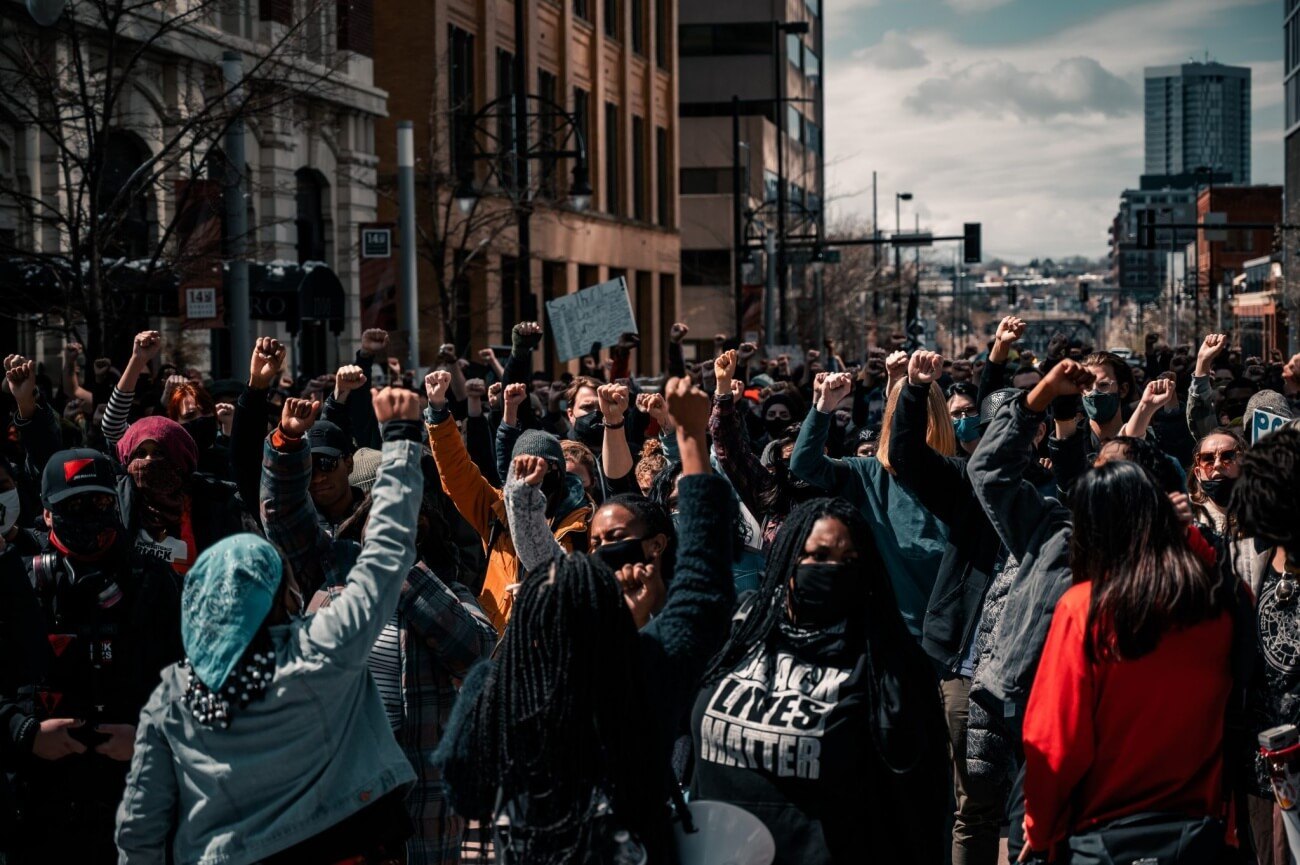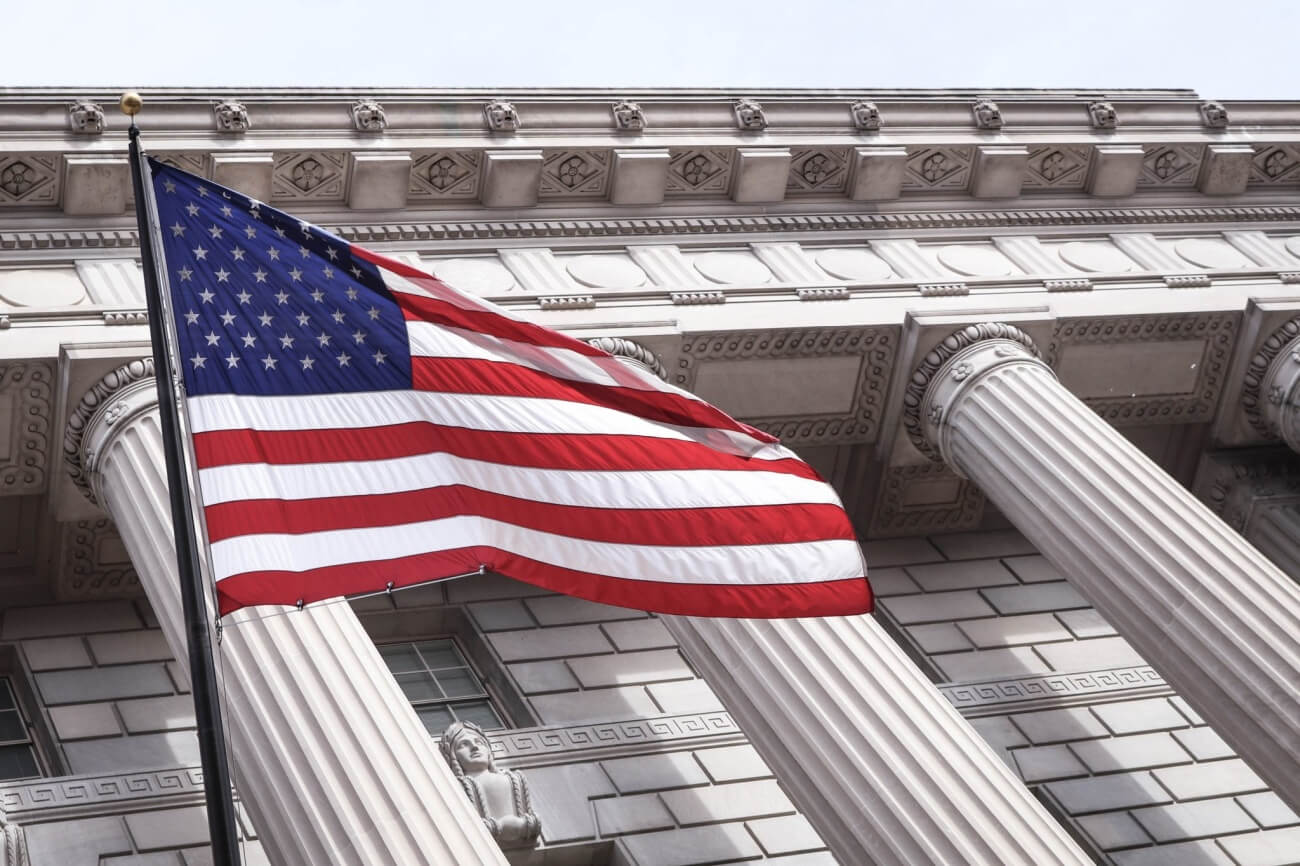Even as civic tech startups launch and grow, founders of color and digital strategists find that today’s divided landscape present challenges to sustain a business based on the public’s willingness to engage in informed debates.
With the midterm elections fast approaching, Americans are neck deep in political content. And if you feel you can’t click on an article or open a social media post without facing cringe-worthy diatribe in the comments section, you’re not alone.
In an effort to better understand how we speak to each other online, the National Institute for Civil Discourse (NICD) analyzed articles and more than 6,400 comments on the Arizona Daily Star’s website for three weeks. The Star is the only print daily serving roughly 1 million residents in Tucson, Arizona, and its surrounding metro.
Overall, more than one in five comments contained some form of incivility — which NICD researchers marked by characteristics like name-calling, disparaging language, and vulgarity. For articles on topics covering politics, business, and the economy, over a quarter of the comments evaluated by the NICD were deemed uncivil. “Our results illustrate very clearly that incivility is a common feature of public discussions,” the researchers concluded.
Tucson is a unique vantage point from which to assess this disturbing trend. In January 2011, six people lost their lives after a gunman opened fire in a Tucson shopping center where then-U.S. Rep. Gabrielle Giffords was meeting with constituents. Thirteen others were injured, including Giffords, who was shot in the head. At a memorial service for the victims, President Barack Obama called for a new era of civility saying, in part,“ Let’s remember that it is not because a simple lack of civility caused this tragedy, but rather because only a more civil and honest public discourse can help us face up to our challenges as a nation.”
Housed at the University of Arizona, the NICD was formed in the wake of the shooting and includes advisors from both sides of the political aisle — including Giffords and her husband, Mark; former Presidents George H. W. Bush and Bill Clinton; and retired Supreme Court Justice Sandra Day O’Connor. The group continues to push for civility and understanding in politics through bi-partisan engagement with lawmakers and public-facing campaigns like Revive Civility.
“So many times, political campaigns — whether they be local, state or national — can lean toward the side of dehumanizing an opponent,” Tracey Todd, who leads social media communications for the NICD, told ThePLUG. “That has extremely detrimental effects on constituents.”
Against this increasingly fraught backdrop, a handful of civic technology companies are looking to educate the voting base in an attempt to revive informed and civilized discourse. Even as startups like these launch and grow, others find that today’s divided landscape makes it hard to sustain a business based on the public’s willingness to leave partisan shouting matches behind.
With home bases in Atlanta, Minneapolis, and Washington, D.C., Civic Eagle launched three years ago under the rallying cry, “Everyone deserves an educated point of view on democracy.” Its mobile-first platform beckoned users to engage in video conversations about topics of the day while keeping fact-based dialogue and civility front and center. But after a short time in business, Civic Eagle found it challenging to scale.
“Folks say they want to be engaged politically, but that’s not always the truth — and we found that out very quickly,” said Damola Ogundipe, co-founder and CEO of Civic Eagle. Even faced with a lower-than-expected user base, Ogundipe and his founding team — digital product designer Yemi Adewunmi, Minnesota policy pro Shawntera Hardy, and software engineer Ken Thompson — weren’t ready to give up.
Rather than leave their mission behind, Civic Eagle pulled a familiar move by social entrepreneurs; they reframed their business model to accomplish their impact goals in a way that allowed them to actually build a business. In doing so, they shifted from a consumer-facing app to a business-to-business (B2B) platform that helps advocacy organizations track legislation — allowing them to engage on relevant policy matters and educate the people they serve.
“We recognized that a lot of advocacy groups — from national organizations like the NAACP to those in individual states — had a tough time understanding and keeping track of legislation, and we wanted to help [them] to advocate for legislation that’s good for society,” Ogundipe explained. “We still are hyper-focused on empowering the residents of the United States, but from a business perspective, a B2B approach is a much better decision for us.”
Powered by artificial intelligence, Civic Eagle’s Enview platform tracks state and federal legislation and filters it by topic. The Enview AI also provides “smart recommendations” for new bills it deems relevant to a given group, and organizers can use Slack-like tagging and collaborating functions to assess bills of interest and discuss them amongst their teams. Ogundipe describes Enview as “legislative intelligence and legislative collaboration — all on one platform.” National and local groups, such as the 25-year-old Minnesota advocacy organization Voices for Racial Justice, are already using it to better understand forthcoming legislation and make their voices heard.
While the shift from a civic technology solution to a political technology platform worked for Civic Eagle, Ogundipe remains concerned about the future of civic tech. “The difficult part about civic technology is that, just like any other technology solution, you need a lot of money to build a platform that can scale,” he told us. “But a lot of folks don’t see civic technology from an enterprise perspective — as something that is scalable and that can generate revenue. Until people see value in social products, it’s really difficult for civic technology companies to be built, to scale, and to be attractive to investors.”
Seasoned media professional and advocate Monique Wingard knows this story all too well. Frustrated with the lack of civic technology coverage in the traditional media and the fragmented resources for professionals in the space, she founded the Civic Tech Collective in 2015 to connect social entrepreneurs and help them share their ideas with the public.
“Social entrepreneurs often feel like they’re buried under the news about what’s not happening or what the government is not doing, but they themselves are trying to solve that issue,” said Wingard, who also leads her own marketing communications firm, SAVVY Consulting and Communications, and serves as a community outreach lead for Black Girls Code. “The other issue I often see is where you have several different people with really good ideas and organizations with similar functions, but there’s no collaboration.”
Through syndicated publishing and an entrepreneur community dubbed the Tech Exchange, Wingard’s Civic Tech Collective is out to help hardworking founders gain visibility and collaborate to push their ideas forward. “Right now, information about civic technology is scattered,” Wingard said. “You have to know an organization’s name to know what they’re doing. You would have to know about Civic Eagle, State Matters or BallotReady to Google them and find out who they are. Imagine how powerful it would be if [groups like these] had a way to come together to achieve their mutual goal.”
At a time when headline after headline seems to amplify the worst humanity has to offer, the idea of pushing “good news” forward can seem challenging at best. But Todd of NICD advised Americans to keep today’s political landscape in perspective — we have been here before and we’ll be here again, but that doesn’t mean there’s nothing we can do about it.
“The United States was founded in these levels of incivility that are so-called new and contemporary,” he explained. “In 1856, Senator Charles Sumner was nearly caned to death by another politician for his views on slavery and abolition. Two years later, after an anti-slavery speech, there was a huge brawl amongst national legislators who could not agree. This is very much woven into the fabric of what America is.”
“Today, the tools of the Internet allow us to recognize it more,” he continued, “but there’s always been a level of incivility that flares up whenever there’s a hugely contentious topic of the day. Technology now has every place in the problem and also in the solution.”
In other words, while data from the NICD and elsewhere clearly demonstrate that the social media age provides a platform for discourtesy and divisiveness, the ease of communication afforded by the Internet is also the backbone of some of our most promising solutions — whether they be social enterprises like Civic Eagle or digital communities rallied behind a common cause.
“Ultimately, beyond all of the dehumanization and all of the smear campaigns, constituents want solutions,” Todd said. “It’s so important for us to create spaces to synthesize and translate this information for other citizens. As a political scientist, my vote counts one time just like someone who doesn’t have the same access to information, so it behooves me to make that information available and help my fellow person.”
Ogundipe made a similar case, arguing that a shift in focus from the way technology exacerbates incivility in pursuit of profit to ways it can bring value, will ultimately help move those solutions to the forefront. “What does it mean to create product value in the United States?,” he asked rhetorically. “How do we step away from only looking to generate the most dollar value as opposed to the most social value? If we could start moving in that direction and get to a better equilibrium around it, we will be better off, and civic technology will be able to have a greater impact.”








